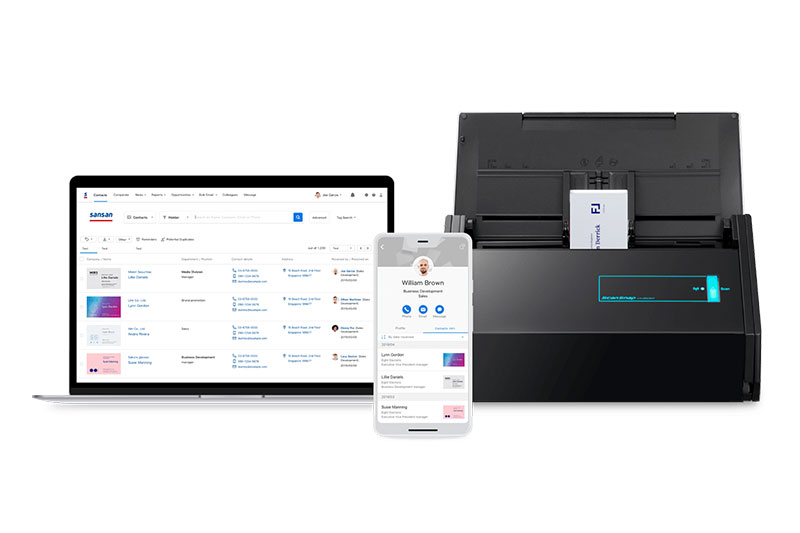Digitalising business cards could open up lead generation opportunities for B2B firms, Goldman Sachs-backed Japanese SaaS firm Sansan believes. Creating AI-informed databases, they’re helping firms manage their contacts more efficiently.
Imagine a world where you have thousands of potential leads at your fingertips – and you know exactly who should reach out to guarantee that conversion. That’s the world Japanese tech unicorn Sansan wants to build with their cloud-based contact management system which scans and logs business cards so you’ll never lose a connection. Backed by investors Goldman Sachs, Salesforce and Nikkei, they’re kickstarting a digital revolution alongside almost 6,000 clients including Toyota, Zendesk and Lenovo – and have just pulled off Japan’s biggest IPO this year, raising JPY 33.8 billion (USD 315 million). Founded in 2007 by tech entrepreneur Chika Terada, they’ve since been featured by the likes of Reuters, Business Insider Japan, and Bloomberg, with offices in Japan and Singapore. We sat down with Regional CEO Edward Senju to chat through how the company plans to expand across Asia – and how they believe they can change the face of business relationships for the better.

So, how does it work? First, physical business cards are digitised via the Sansan scanner or a mobile app. Contact data is then uploaded securely to a cloud database and supplemented with external information by a proprietary AI system. The database becomes a permanent resource that can then be shared internally with colleagues, augmented with the ability to customise or restrict access as needed. “Only 20% of the information that a company receives via a business card ever goes into a CRM [content relationship management] or SF [start-to-finish relationship]. The other 80% is lost,” Edward explains. By streamlining the digitisation process to capture 100% of contact data – which current CRM systems fail to do, he believes the remaining 80% will become “a goldmine” for increasing sales revenue by unlocking potential leads that would otherwise have been discarded.
You might also like This Silicon Valley Startup is Taking LinkedIn to the next level. Here’s how.
In addition to capturing basic contact information, Sansan takes things one step further, logging a contact’s career, the location where the business cards were exchanged, meeting reports, tags and notes such as hobbies or preferences that might be used to strengthen future relationships. “Business cards represent face-to-face connections. People have context around when they exchange business cards. But, if it becomes a digital process, it loses that additional context,” explains Edward. “So, that’s what we want to capture from our users, and add that additional information to our system.” Along with integrated emailing, advanced search functions, internal messaging and reminders, Sansan’s SaaS has garnered widespread interest from firms across Asia – think Japan, Singapore, Hong Kong, Taiwan, Thailand and Indonesia – and have raised a total of USD 120 million in funding prior to their IPO.

The main trend will be moving from a purely analogue system of paper business cards to a hybrid system that harnesses the power of digitisation to enhance efficiency, Edward says of the future, although, for now, barriers to adoption still remain. “It’s about changing people’s minds. Some people are not used to it,” Edward says, explaining that companies have yet to realise the full potential of digitisation – and that employees are sometimes reluctant to share the contacts they have made. “It’s about nurturing this concept, and telling people that this is a good thing for the company and also for individuals – a smarter way to connect to customers. And, I think if we can overcome that, people will join our club much more easily.” In addition to their B2B service, they’ve now also created a similar offering for individuals with their business card app Eight, which has garnered 2.5 million users in Japan alone. With ambitious targets to increase revenue by 30% to 50% annually, Edward comments, “I think the very big potential now is basically the market outside Japan. This is what we want to be the growth engine for our company and I hope the Singapore team will spearhead that.”
Related Articles
From Google to Twitter, Silicon Valley Prodigy Builds Startup with Speculated USD200M Valuation
5 Growth-Hacking Strategies You Need to Grow Your Business Fast
Could Coliving be the Answer for Asia’s Expensive Cities? This Startup Thinks So.





